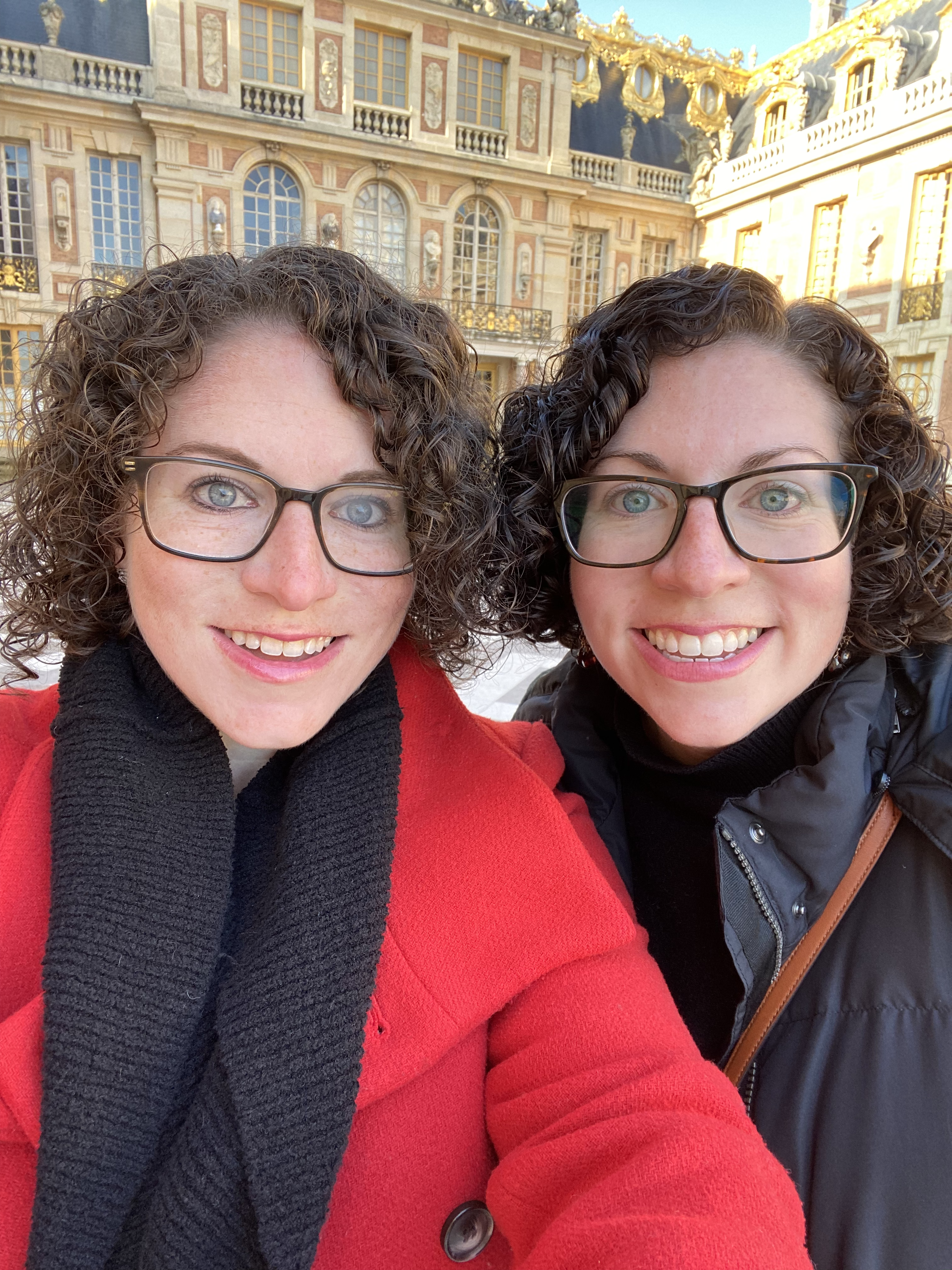
Double the Trouble? Double the Fun!
Beverly Brooks, St Mary's Episcopal School
January 29, 2024
To put it simply—I am an identical twin. We go through phases of how much we favor one another, but the resemblance is always there. When meeting each other’s coworkers, we typically brace ourselves for someone’s inevitable scream. I get asked regularly what it’s like to be a twin, and my answer is both genuine and unchanging: “I don’t know.” I can’t explain to you what it’s like, or how it’s different from my relationship with my other two sisters. It just is. What I know is that when we grew up, particularly under my parents’ influence (my dad was a counseling education professor and my mother is an education professor), we wanted to be distinct. As children, it meant we chose different friend groups and different sports. In high school, any time my twin sister was interested in a college, even briefly, I struck it from my list. Ironically, we spent four years at very similar schools (The College of Wooster and Hendrix College—hooray, CTCL!), solidifying ourselves as wholly different people.
In my first year as a college counselor, I had a set of identical twin boys on my caseload. There were no phases of favoring each other; they were a copy-paste situation. I was dedicated to treating them distinctly, which started with trying to figure out who was who. Eventually, I discovered one had a small scar on his cheek—success! I committed myself to meeting with them separately, never bringing up the other twin, and I wouldn’t even entertain the conversation when they brought each other up. Their parents graciously came in for twice as long so that the boys could have their own
moments. Despite my efforts to the contrary, I watched as their lists mirrored each other, and they eventually chose the same college. I couldn’t quite wrap my head around that—I couldn’t spend more than three days at a time with my twin sister, how are they going to spend four years??
And then I reminded myself of something I tell others quite regularly: twins are not a monolith. For some of us, like my first set of twins, being around our twin helps us further explore our shared interests and passions. I just checked LinkedIn and confirmed—after sharing a post-college internship, these young men spent five years apart and moved back together just three months ago. They had different majors, and they now work at different companies. How special, that their bond is one that persisted as they developed into distinctly different adults.
Others couldn’t be less similar if they tried. A recent set of twins on my caseload were so fraternal and had such disparate interests that most people forgot they were related—one is now at a highly selective private university in the Midwest where she hopes to study biomedical engineering and the other is at an SEC school whilst pursuing a modeling career. Their mother commented to me recently that she assumed I would spend the majority of my time on her more academically competitive daughter and was shocked that the girls received my time and resources equally. But, as I reminded her, that equality is important to me—both as a counselor and as a twin.
 Being a twin can sometimes feel like a sideshow. We get asked regularly if we can read each other’s thoughts (no), if we dressed alike as children (only when visiting grandparents), and if we ever switched places (once, and we made it about ten minutes). Birthdays are a strange affair—that day never quite feels like yours, but it’s not quite right when you’re apart, either. But as hard as we fought (both generally and to become our own people), as adults, we’ve come back together. We talk every day. We even vacation together. When entering our 10-year high school reunion, my twin’s impressive job at ESPN was not the evening’s topic of conversation, but rather that we’d shown up together. And while we certainly occupy different worlds, we’re both independent, confident, progressive people who encourage young women to unapologetically take up space. It’s what we learned from our parents, and it’s how I counsel twins now—you can take up double the space, not share a singular one.
Being a twin can sometimes feel like a sideshow. We get asked regularly if we can read each other’s thoughts (no), if we dressed alike as children (only when visiting grandparents), and if we ever switched places (once, and we made it about ten minutes). Birthdays are a strange affair—that day never quite feels like yours, but it’s not quite right when you’re apart, either. But as hard as we fought (both generally and to become our own people), as adults, we’ve come back together. We talk every day. We even vacation together. When entering our 10-year high school reunion, my twin’s impressive job at ESPN was not the evening’s topic of conversation, but rather that we’d shown up together. And while we certainly occupy different worlds, we’re both independent, confident, progressive people who encourage young women to unapologetically take up space. It’s what we learned from our parents, and it’s how I counsel twins now—you can take up double the space, not share a singular one.
All of this is to say, the twins on your caseload are two different people—but that doesn’t mean that they have to be opposites. Sometimes it can mean pursuing a career as a fashion model while your twin is creating miniature pacemakers. Sometimes it means living together in your late 20s after attending the same college and working in the same internship. It may always mean scaring your twin’s colleagues. But the equal time and energy a counselor spends making the twins on their caseload feel special and seen and known? It’ll come back twofold.
